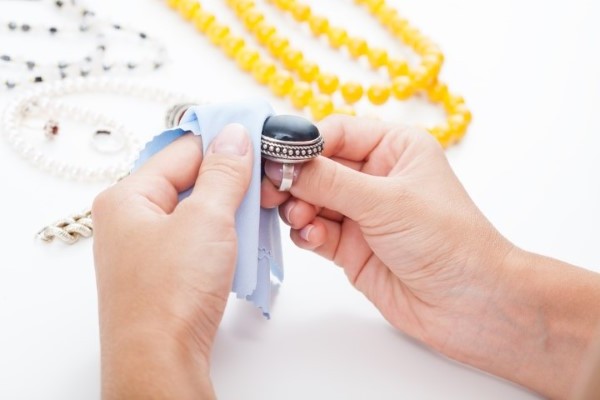Stone Care & Restoration experts are often called in to repair damage caused by residents, cleaning companies, janitorial services, and building service providers who fail to care for natural stone surfaces properly.
When cleaning a calcium-based stone like marble or travertine, one of the most common mistakes we see residential clients make is using vinegar. Chemically, vinegar interacts with the calcium in natural stone, causing it to become dull and rough-looking rather than attractive and graceful.
Commercial clients aren’t exempt from making mistakes regarding stone maintenance. A business customer requested professional services after a maintenance employee applied a clear coating to three thousand square feet of engineered stone flooring without the proper training, expertise, or credentials. Walking surfaces at this facility were dulled and damaged by the large volume of pedestrian activity, while the walls were still glossy. Pieces of the fragile finish fell free every time the housekeeping service wet-mopped the flooring.
It’s common for customers who phone to express hope that the damage done to their stone won’t harm the finish and save them from replacing the stone. To minimize natural stone damage when caring for and maintaining your home’s birthstone, we’d like to share some helpful tips and tricks!
Suggestions for the care and upkeep of your home
- Clean the floor every day to eliminate any grit that might damage the finish.
- Mop the floor with a neutral stone cleaner. Use a very soft pad and maintain the squeegee clean and free of filth for business customers that undertake auto cleaning.
- Do not allow any film-forming finish, such as traditional floor finishes or over-the-counter treatments that “add shine,” to be applied to the floor.
- Any petroleum distillate products that penetrate the stone and seem to darken and shine by blocking the pores with an oily finish should be avoided. Slip and fall incidents might occur due to this, making it tough to fix.
- Natural stones such as marble should not be exposed to acidic agents. Even though stone care specialists may use acidic polishing compounds, these chemicals may cause catastrophic harm if mismanaged. Keep an eye out for products that clean the toilet bowl. Acidic cleaners should not be used near the natural stone.
- Do not use abrasive cleaners, including “soft” abrasives, on showers or countertops. When abrasives are used on marbles, they may readily become dull and scratched.
- Unless the product explicitly states that it is suitable for natural stone, please do not use it to remove hard water.
The use of sealers is vital.
Spills will be repelled by a stone impregnating sealer, giving you more time to clean up before the porous stone absorbs them and turns them into stains. A skilled stone restoration contractor can help you choose the suitable sealer for your stone and apply it correctly. However, impregnating sealers do not protect the stone’s surface against etching even when limiting staining. Even if adequately sealed, marble and other calcium-based stones may be etched by acidic substances like lemon juice, vinegar, or various cleaning agents, even though granite is generally impervious to etching.
It is possible to prevent causing harm by following the advice provided here. These natural stone surface care and maintenance guidelines should be considered whether you utilize a cleaning agency, janitorial service, or building service providers.

